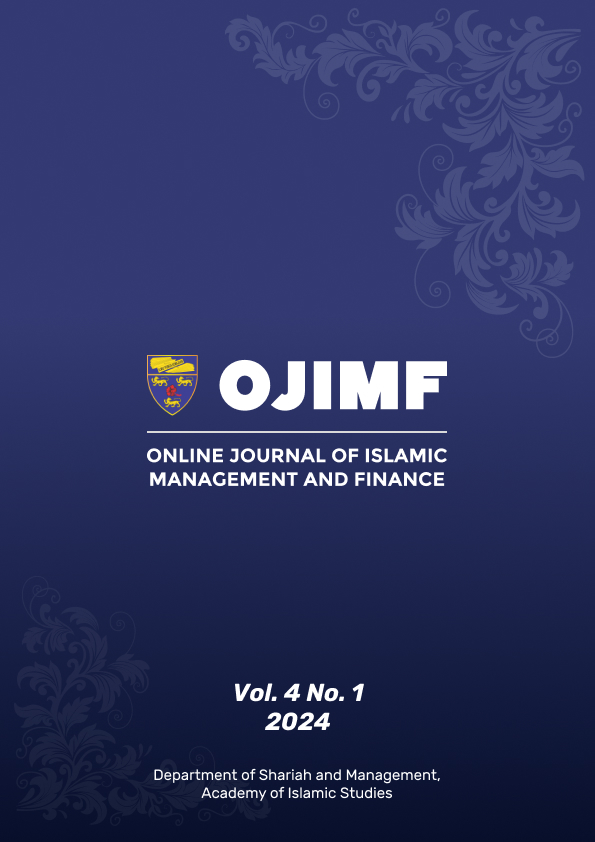العزلة الوظيفية وتأثيرها على انجاز الاعمال بإتقان: المسببات والحلول JOB ISOLATION AND ITS IMPACT ON COMPLETING WORK EFFICIENTLY: CAUSES AND SOLUTIONS
Main Article Content
Abstract
In this research paper, the researcher seeks to find out the causes of job isolation and its impact on the proficient completion of work among employees of the State Council and the Shura Council in the Sultanate of Oman, the problem crystallizes in understanding the causes of job isolation and its impact on the completion of work and tasks with perfection. The researcher also seeks to know the extent of the degree of job isolation among the study sample, and the extent of its impact on the completion of work with perfection. The researcher relied on the descriptive analytical approach to analyze the impact of the phenomenon of functional isolation. The quantitative approach was also used, based on the questionnaire, as a tool for collecting primary data. The researcher sought to distribute the questionnaire to the study population, which numbered 171 to obtain the results. The researcher's findings concluded that there were low levels of feeling of lack of power، Also, the results showed, there is a medium level of feeling of functional isolation, and there is also a medium level of feeling of self-estrangement. On the other hand, the results showed that there was an average level of self-confidence, completing work efficiently, and effective social communication. The study also reached a number of recommendations, the most prominent of which are Establish clear specifications and a clear professional job description for each career path within the State Council and the Shura Council and inform employees about it, Establishing clear standards for evaluating institutional performance, which the employee can review, and linked to job specializations, international models can be used to evaluate performance.
Downloads
Article Details
References
Cowper, J. & Samuels, M. (2005). Performance benchmarking in the public sector: the United Kingdom experience, Office of Public Services Cabinet Office, United Kingdom, p. 1. https://www.semanticscholar.org/paper
Grandey, A. A., & Cropanzano, R. (1999). The conservation of resources model applied to work-family conflict and strain. Journal of Vocational Behavior, 54:2, pp. 350-370.
Hosseinzadeh, A., Nazem, F., & Eimani, M.N. (2014). Investigating the factors affecting the employees' job alienation in District 2 of Islamic Azad University, Academy for Environment and Life Sciences, 3:1, p. 6
Lutz, E. (2019). Understanding workplace loneliness and strategies to cope. Harvard Business Review, 51:4, pp. 1221-1247
O'Reilly, J., Robinson, S.L., Berdahl, J.L., & Banki, S. (2014). Is negative attention better than no attention? The comparative effects of ostracism and harassment at work. Organization Science, 25:1, pp. 297-308.
Savanam, C.S. (2010). Benchmarking, African Journal Of Business Management, 4:6, pp. 882-885.
Valadbigi, A., Ghobadi, S. (2012). The study of the elements of work alienation, A case study of the Orumiyeh White Cement factory, International Journal of Sustainable Development, 4:9, pp. 71-84.
Valikhanim, M. & Soltani, E.(2015). Investigation the effect of job alienation on the organizational citizenship behavior (Branches of Sepah Bank in Shahreza and Dehaghan as Case Study, International Journal of Academic research in Business and Social Sciences, 2015, 5:1, pp. 277-286.

